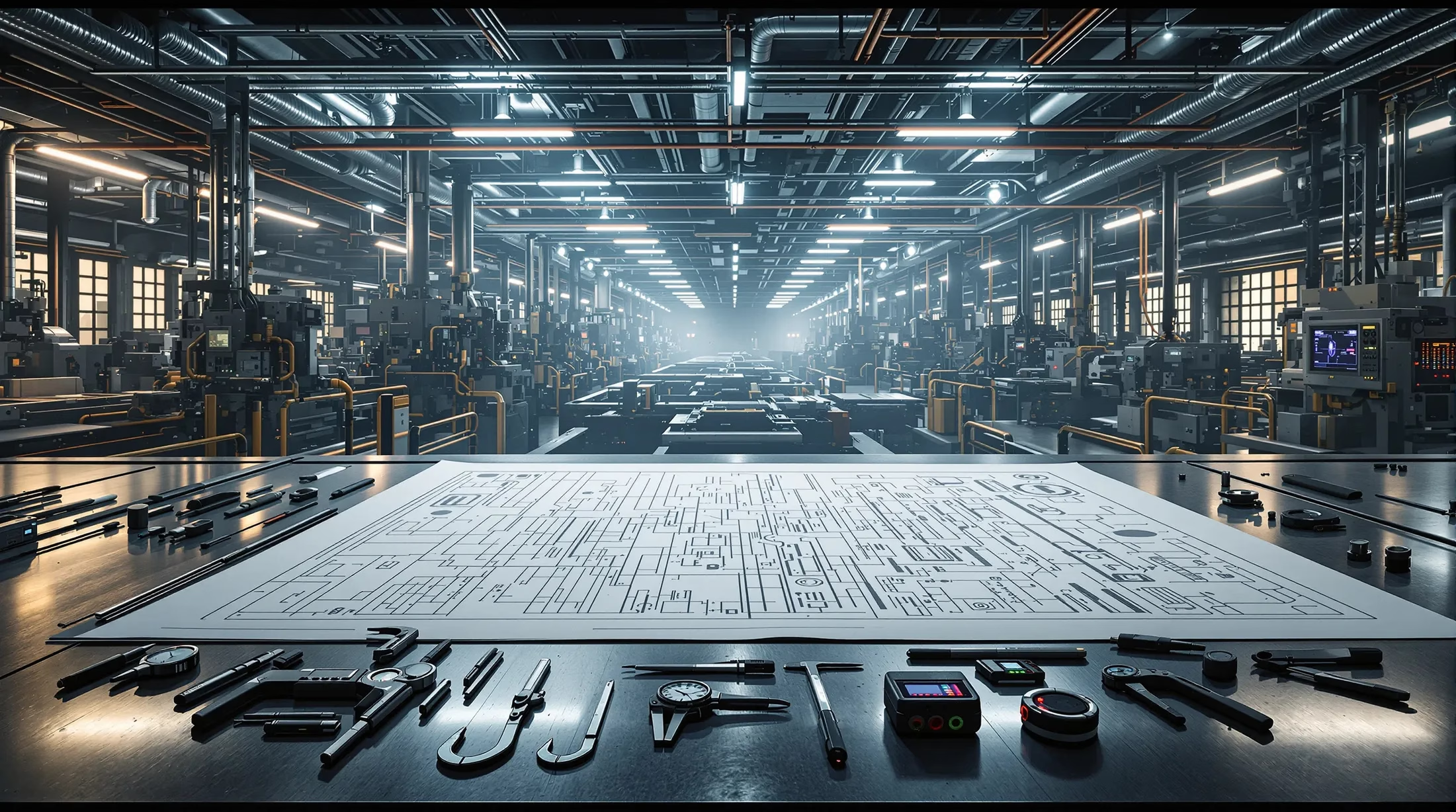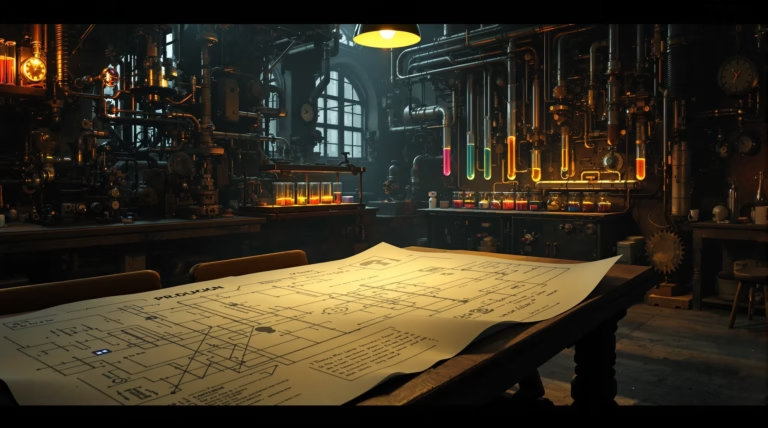What Does an Industrial Engineer Do? Discover Their Roles and Responsibilities
Discover the dynamic world of industrial engineering, where innovation meets efficiency to revolutionize modern industries. From optimizing complex systems to enhancing workplace productivity, industrial engineers play a pivotal role in shaping the future of manufacturing and service sectors.
Understanding the Role of an Industrial Engineer
Industrial engineering is a discipline that seamlessly blends engineering principles with business acumen to optimize complex systems. An industrial engineer serves as the efficiency architect of modern industry, focusing on analyzing and enhancing processes across manufacturing and service sectors. They are uniquely positioned to see the big picture of operations while also addressing the minute details that impact productivity.
These professionals work at the intersection of people, machines, materials, and information to create more efficient workflows. Unlike other engineering disciplines that focus primarily on technical specifications, industrial engineers concentrate on how components interact within a system. They develop and implement strategies that not only improve production quality but also reduce costs, minimize waste, and enhance workplace safety – ultimately creating more value for both businesses and consumers.
Defining Industrial Engineering
Industrial engineering is the branch of engineering dedicated to optimizing complex systems, processes, and organizations. It applies scientific principles to design, implement, and improve integrated systems that involve people, materials, information, equipment, and energy. What sets industrial engineering apart is its holistic approach – considering not just the technical components of a system but also human factors, economic constraints, and resource limitations.
The field emerged during the Industrial Revolution but has evolved significantly to address modern challenges across diverse sectors. Today’s industrial engineers leverage advanced technologies, statistical analysis, and management science to solve multifaceted problems. They operate under a simple yet powerful philosophy: finding the most efficient way to deliver products and services while maintaining quality, safety, and customer satisfaction.
Core Responsibilities of Industrial Engineers
- Analyzing existing workflows to identify bottlenecks and inefficiencies
- Designing effective systems for resource management
- Conducting time studies and workflow analyses
- Developing standardized work procedures
- Managing supply chains and inventory optimization
- Implementing quality control measures
- Leading continuous improvement initiatives
- Establishing performance metrics and monitoring systems
Key Skills Required for Industrial Engineers
Success in industrial engineering hinges on possessing a diverse skill set that spans both technical expertise and interpersonal abilities. Industrial engineers must master analytical thinking to decompose complex systems into manageable components while maintaining a holistic view of operations.
Technical Skills in Industrial Engineering
- Statistical analysis and data modeling
- Computer-aided design (CAD) software proficiency
- Simulation programming (Arena, FlexSim)
- Enterprise resource planning (ERP) systems
- Operations research techniques
- Programming languages (Python, R)
- Process improvement methodologies
- Ergonomics and facility layout design
Soft Skills for Industrial Engineers
| Skill Category | Description |
|---|---|
| Communication | Ability to articulate complex technical concepts to diverse audiences |
| Problem-solving | Critical thinking and root cause analysis capabilities |
| Leadership | Guiding cross-functional teams through change initiatives |
| Adaptability | Flexibility in approaching various industries and challenges |
| Negotiation | Balancing competing priorities and resource allocation |
Industrial Engineering Processes and Optimization
Industrial engineering fundamentally revolves around the science of optimization—enhancing systems and processes to achieve maximum efficiency with minimal waste. At its core, industrial engineering transforms inputs (materials, labor, energy) into valuable outputs through systematic analysis and improvement of production workflows. These professionals develop comprehensive methodologies to streamline operations, reduce costs, and maintain high quality standards across diverse industries.
Industrial engineers employ data-driven approaches to identify inefficiencies within complex systems. Through innovative solutions that balance human capabilities with technological resources, they create sustainable optimization strategies that deliver measurable results. Unlike other engineering disciplines focused on product creation, industrial engineers excel at perfecting production systems—making existing processes more efficient, cost-effective, and adaptable to market demands.
Process Improvement Techniques
- Lean manufacturing principles for eliminating waste (muda)
- Value stream mapping
- 5S workplace organization
- Just-in-time production systems
- Six Sigma methodology using DMAIC framework
- Statistical process control (SPC)
- Root cause analysis procedures
- Quality management systems implementation
Optimization Strategies in Industrial Engineering
| Strategy | Application |
|---|---|
| Simulation Modeling | Digital representation of production environments for scenario testing |
| Mathematical Programming | Resource allocation and production scheduling optimization |
| Workstation Design | Ergonomic improvements for productivity and safety |
| Digital Transformation | Implementation of HMIs and integrated monitoring systems |
| Systems Integration | Connecting SCADA to ERP for seamless operations |
Industries and Sectors Employing Industrial Engineers
Industrial engineers demonstrate remarkable versatility across diverse industries, from healthcare facilities to financial institutions, e-commerce operations to government agencies. Their expertise in optimizing complex systems and improving efficiency makes them invaluable assets in virtually any sector. Their focus on universal principles of efficiency and optimization, rather than industry-specific technical knowledge, enables them to adapt and excel across different fields.
Manufacturing and Production
- Design and refinement of production systems
- Implementation of optimal production schedules
- Facility layout optimization
- Quality control system development
- Automation and robotics integration
- Just-in-Time inventory management
- Standardized work procedure development
- Material requirements planning
Healthcare and Service Industries
Industrial engineering has revolutionized healthcare delivery by implementing manufacturing-derived optimization principles to enhance patient care while managing costs effectively. In medical facilities, these professionals focus on streamlining operations through several key initiatives:
- Redesigning patient flow systems to minimize wait times
- Optimizing staff scheduling based on demand patterns
- Reorganizing medical supply chains for improved efficiency
- Analyzing treatment protocols for resource optimization
- Implementing capacity management solutions
The service sector has experienced similar transformations through industrial engineering applications. From banking to hospitality, these implementations have yielded significant improvements in both customer experience and operational efficiency.
| Service Sector | Industrial Engineering Applications |
|---|---|
| Financial Institutions | Queue management systems, staff optimization across functions |
| E-commerce | Warehouse fulfillment processes, order processing optimization |
| Entertainment Venues | Crowd flow management, concession operations, visitor experience enhancement |
Educational Pathways and Career Opportunities in Industrial Engineering
The field of industrial engineering offers diverse professional pathways across multiple sectors, from manufacturing and healthcare to logistics and technology. These professionals are particularly valued for their versatility in applying optimization principles to various operational challenges, making them essential to organizations focused on efficiency and waste reduction.
Educational Requirements for Industrial Engineers
- Bachelor’s degree in industrial engineering or related fields (mechanical engineering, systems engineering)
- Core coursework in mathematics, statistics, engineering principles
- Practical experience through laboratory work and internships
- Advanced degrees (Master’s, MBA) for specialized roles
- Professional certifications (Six Sigma Black Belt, PE license, CPIM)
Career Growth and Opportunities
| Career Level | Potential Roles |
|---|---|
| Entry Level | Process Engineer, Production Coordinator, Quality Analyst |
| Mid-Career | Supply Chain Manager, Quality Engineering Director, Operations Analyst |
| Senior Level | Industrial Production Manager, Engineering Manager, Chief Operations Officer |
| Specialized Roles | Ergonomist, Human Factors Engineer, Simulation Specialist |







